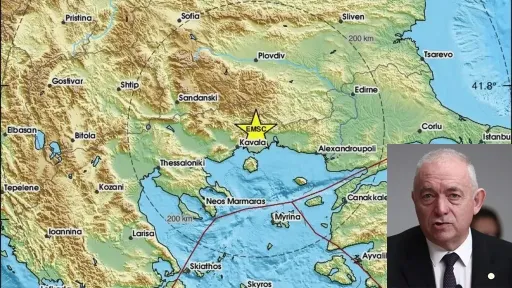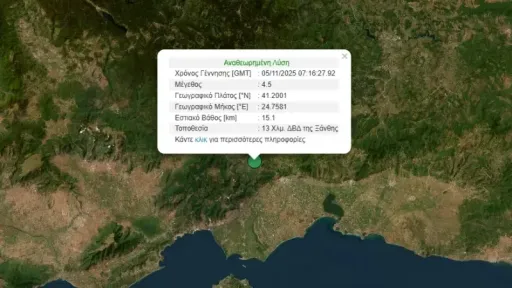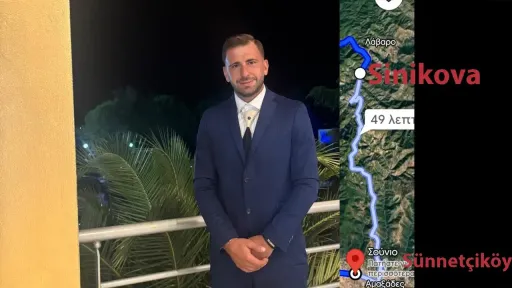The Earthquake in İskeçe shook not just the ground, but consciences too

The earthquake in İskeçe was brief, but it shook the conscience of the community for much longer. The new school building that the Turkish Minority has awaited for years remains just a dream. Instead of measuring justice and equality, the state acts along ethnic lines.
The recent earthquake was strong, yet short. Its impact, however, lingers, because the tremor tested not only buildings, but also our nerves, patience, and even the state’s reflex of turning a blind eye.
Within seconds, everyone thought the same thing: “What about our children’s school?”
Yes, that famous building—the İskeçe Turkish Minority Secondary School and High School. Its old walls are cracked and fragile, preserved almost like a museum piece. Restoration? Not at all; it’s left to its fate, a piece of history abandoned. With each quake, it gains a little more “experience.”
I’m talking about that worn and neglected building, which has been on our agenda for years. Hundreds of our children still study there. With each earthquake, the risk grows; with each passing moment, our anxiety rises.
Has anyone listened to our calls? No. Our petitions, marches, and outcries have all gone unanswered.
Experts warn that the area lies on an active fault line. We say the fault line is not only underground—it runs through the country’s governance system as well.
How many times have we petitioned, marched, and raised our voices: “We want a new school!” But it’s all in vain; the walls are still standing, and consciences remain as hard as concrete.
We said “building,” they heard “politics.” We said, “Keep our children safe,” they muttered, “the minority is asking for something again.”
It seems some ears only listen during election season, and some consciences only work when disaster strikes someone else.
Every earthquake reminds us not only of the power of nature, but also of the state’s indifference and its policies toward minorities. There is a mindset that tries to silence us because we are Turkish; a system that has made it a habit to do the opposite of whatever we request.
İskeçe and its surroundings lie on an active fault line—danger is always near. But the real danger lies in the state’s long-standing disregard for the rights of a community. Our demands are suppressed by political bias and ethnic discrimination, and the answer we get each time is the same: “No.”
The earthquake showed us something crucial: the problem is not only the tremors of nature, but also the tremors caused by injustice created by human hands. Walls can fall, buildings can be repaired. But if injustice and the cracks in hope are not fixed, the real destruction begins.
God forbid, if one day that school’s walls truly collapse, the first statement will surely be: “It was an unexpected incident.” Yes—because for years, nothing has ever been done the way it should have been!
This earthquake reminded us of a stark truth: we no longer fear buildings that may collapse; we fear unshaken consciences.
For us, the matter is not just a school building. It is a question of a society’s memory, identity, and equality. And through this earthquake, we have realized once again that even if some buildings remain standing, some systems have already collapsed.
But we are still standing.
Because to be shaken is not to fall.
We are a society that grows closer and stronger the more we are shaken.







